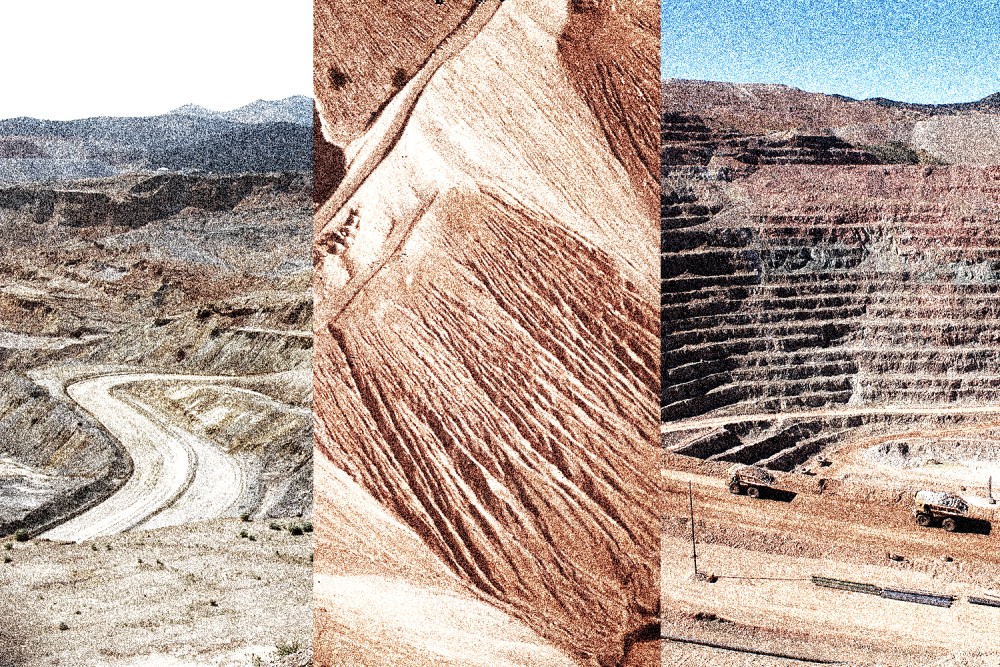The desecration of Oak Flat
Idolatry rarely turns out well for people—or for the rest of creation.

Century illustration (Source images: Creative Commons)
In June, the US Forest Service published its 2,650-page final environmental impact statement for the Resolution Copper Project and Land Exchange, which involves transferring a 2,422-acre portion of Arizona’s Tonto National Forest, known as Oak Flat, to a copper mining company in exchange for land the company owns elsewhere. The project has been mired in controversy, protests, and litigation for over a decade (see “Apache Stronghold’s rooted resistance”), not only because of concerns about groundwater depletion and contamination, but also because Oak Flat is regarded as sacred by many San Carlos Apache people. The land transfer is scheduled to happen on August 19.
Over a 40-year lifespan, the mine is expected to create thousands of jobs and produce $150 billion worth of copper—enough to fulfill one-fourth of US demand for copper during that period. Because copper is malleable, durable, antibacterial, and highly conductive of heat and electricity, it’s thoroughly embedded in the infrastructure of our lives. It’s in our houses, supermarkets, electric vehicles, charging stations, trains, semiconductors, generators, MRI machines, data processing centers, wind turbines, solar panels, airplanes, churches, medical implants, office buildings, cell phones, and electric grids.
Read our latest issue or browse back issues.
But the extraction of copper will obliterate Oak Flat. Where centuries-old oak trees now stand, where Apache girls dance the Sun Dance alongside the Gaan (spirit dancers) to experience the Creator’s presence, there will soon be only a crater—1,000 feet deep and almost two miles wide—and a tailings pile containing 1.5 billion tons of toxic waste. That’s an exorbitant price to pay for one-fourth of 40 years worth of copper.
In “Trump's imperial golden age,” Presian Burroughs explores the context of Paul’s letter to the Romans, a time when emperors believed to be divine routinely seized and decimated the land around them for profit. “Roman expansion and luxury exacerbated deforestation, erosion, the siltation of waterways, and desertification,” she writes. It’s easy to see parallels to Oak Flat, where the earth will soon groan under the pressure of underground shafts and the weight of heavy machinery.
It would be easy to blame the destruction of Oak Flat entirely on the mining company, its lobbyists, and the politicians beholden to them. But the successful collusion of these powerful entities took place within the context of a cultural reality as ubiquitous as our need for copper: our worship of the false gods of unchecked capitalism and the illusion of unfettered growth. History shows that idolatry rarely turns out well for people. Oak Flat reminds us that it typically doesn’t turn out well for the rest of creation, either.
It may be too late to save Oak Flat. But we still have the agency to choose who to stand with in future land disputes, how to lament when extractive visions triumph, and which values to revere in the meantime. The Spirit hovers at Oak Flat, calling us into a more faithful way of life—and this Spirit isn’t going to leave any time soon.





